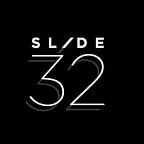Inside Track: My Experience as a POC Working in NASCAR and that Damn Flag
As a fan, an Asian American, and a former Marketing Director for a NASCAR race, I want to take a moment to talk about how the recent ban on the confederate flag is not only the right socio-political move, but also a critical marketing strategy to keep the sport alive and growing.
One of the biggest issues NASCAR struggles with is getting new, young fans. As a result the marketing of the sport is at times overly accommodating to their aging, legacy fanbase, afraid to try anything new for fear of alienating the paying customers they do have. This creates a rapidly growing delta, not only between the sport and new fans, but also between the sport and our evolving culture.
In 2004 while living and working in Charlotte, North Carolina I had the opportunity to attend an honored Southern pastime: my first NASCAR race. As someone who studied and worked in the sports industry and a sports fan, I had followed NASCAR and knew there was more to its success than tailgating and turning left, so I was excited at the opportunity to see it in person.
As a spectator, I was immediately enthralled with the sport, but as a non-white southerner, I was intimidated by the culture. Walking up to the racetrack, I saw only white people, and plenty of confederate flags. Surrounded by my white colleagues I begged them to not leave me alone because I was scared. When they wanted to go to the in-field and walk amongst the people I claimed, “too many confederate flags and rednecks who probably hate me.” I chose to hide in the safety of the luxury suite of our hosts, watching the race in a “protected” environment. Despite my fear, I understood why NASCAR had its appeal. The excitement I felt from the fans, the energy, and the crashes were spectacular. It was a night I would never forget.
It was also in 2004 that NASCAR implemented the Drive for Diversity program as a marketing initiative to attract minorities and females to the sport, however, since then it did little to move the needle on diversity. Sure, it created stars like Kyle Larson and Bubba Wallace, but NASCARs fans have continued to age, viewership and attendance decreased, and the sport continues to miss the attention of younger, more diverse fans that other sports leagues captured, in large part to their ability to adapt to a changing market and an evolving culture.
Fast forward 10 years later, I was the marketing director of a motorsports complex that hosted an annual NASCAR race. The growth problem was now my personal and professional obligation. Part of my job and the job of any good marketing person was to talk to our potential audience-base and understand what motivated them. Non-NASCAR fans I talked to didn’t want anything to do with the sport because of the lack of diversity. The presence of the confederate flag also came up repeatedly. Non-fans didn’t want to be associated with a pastime that included confederate flags and it turned them away immediately. As a marketer, it was extremely frustrating. As a fan it was heartbreaking.
As part of the job, oftentimes we would go to other tracks to see best practices in the industry. On one particular trip to a NASCAR race in Las Vegas our team decided to take a grassroots approach and go into the in-field and talk to some of the fans hoping this would give us some insight that we could translate to new fans. (For those of you unfamiliar with NASCAR, the in-field is where some of the most die-hard fans sit/camp.) During one of my breaks I bravely went into the in-field on my own to do some market research.
I came across a camp that had what I thought was the best set-up. A self-fastened chair, perched on top of a wobbly ladder, on top of their trailer so they could get a view of the cars going around the oval. Clearly, these were dedicated fans. However, I quickly noticed there was a confederate flag on the rig. So I sheepishly walked away thinking those people probably hated someone like me. As I was walking away, one of the fans in the camp shouted at me and asked me if I wanted a beer! This friendly gesture led to me hanging out with the camp for a while getting to know the fans. They even invited me to test out their viewing chair and continued offering me beers as I walked away. Does this mean these people aren’t racists or that the flag is harmless? No, but it does mean that if we lean on our shared love of the sport, we can see past some of our differences and grow together. It was one of the best fan interactions I’ve had in my 14-year career in professional sports.
While those fans I interacted with in Vegas probably didn’t know the implications the flag had on me, at least now with its removal, it will be one less obstacle for people coming together and celebrating good competition and good times. To most of the world, the confederate flag is a symbol of racism. It’s a symbol that any person of color is not welcome. NASCAR took a great first step in addressing the cultural divide by banning the confederate flag. But if it can’t take other steps to capture the attention of a new generation of Americans, NASCAR will continue to dwindle and its fate will be the same as the Confederacy itself.
Slide 32 is a marketing agency with a conscience. We believe that the best marketing a brand can do is contribute to their community. We’re here to help you connect your marketing efforts to create a real positive impact. Connect with us here.
